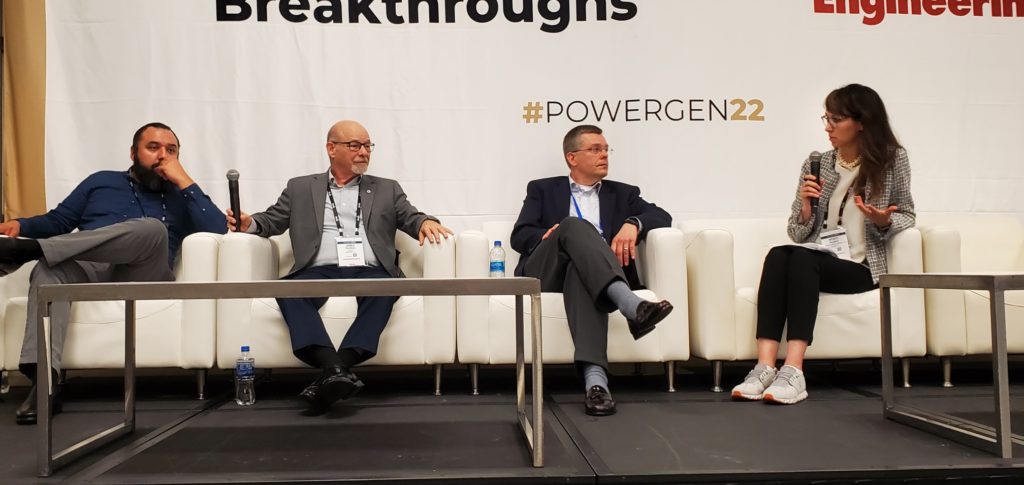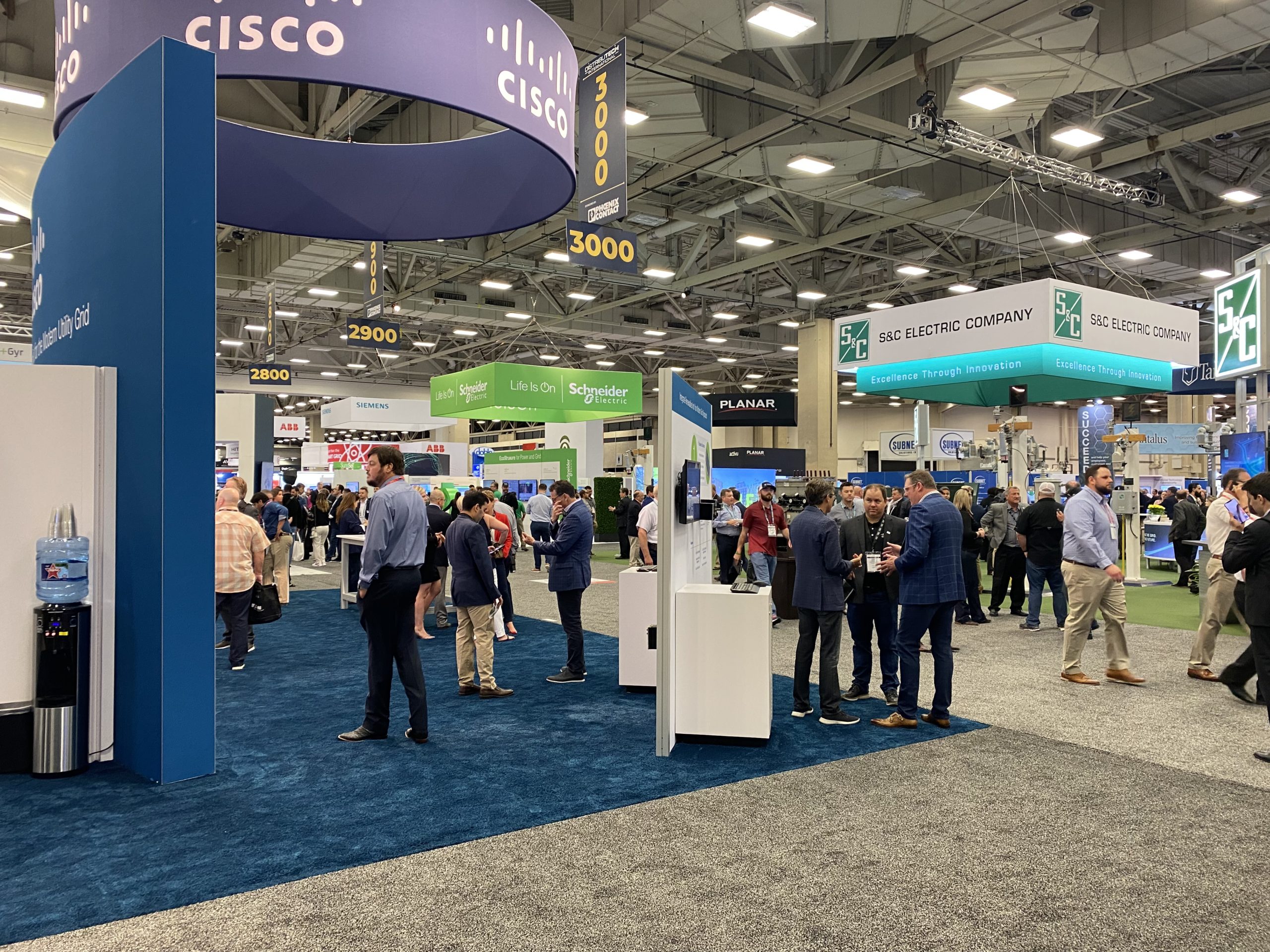By Patrick Ingraham
The first DistribuTECH conference in two years wrapped up at the Kay Bailey Hutchison Convention Center in Dallas, Texas, during the last full week in May, setting the stage for the future of the electricity industry in the coming weeks, months, years, and decades.
With more than 10,000 people attending, there was palpable excitement as attendees connected to sell, network, and exhibit—with newcomers to the conference anticipating growing business prospects and potential sales leads.
This year’s theme, “Resilience,” highlighted several areas where industry members are focused on moving forward. Those areas include electrification, transitioning to clean energy resources, improving grid reliability and safety, funding structures for the future of the energy, utility communication infrastructure, and implementation of new technologies to accelerate the advancement of the modern grid.
Keynote speakers included a Day One address from former Secretary of Energy Rick Perry and the current Secretary of Energy, Jennifer Granholm—who both discussed the industry’s future but had sharply contrasting viewpoints.
Perry’s message covered a more traditional energy generation and distribution approach, highlighted by clear support for fossil fuels and nuclear energy, which likely connected with a portion of the audience. Perry also clarified that current industry and government leaders must be “truthful” about how the U.S. and other countries can realistically achieve current net-zero emissions goals.
Meanwhile, Granholm highlighted what the current administration is doing to support renewable energy generation and boost emerging technologies like long-duration energy storage. Like many in the industry, Granholm expressed reservations about the readiness of the current grid to handle an influx of new energy resources. However, she reiterated a steadfast commitment to renewables and clean energy to improve industry standards and positively impact climate crises.
The conference sessions, segmented by several different educational tracks, were all well attended and provided more in-depth, practical discussions around the implementation of new technologies, the modernization and resilience of the grid, managing safety around relatively new developments like energy storage projects, and financial issues surrounding various structures in the industry.
A common complaint among conference attendees was that several buzzwords had grown so mainstream that some have become uninspired or overused. Words or phrases like “ESG,” “Energy Transition,” or “AI” were commonplace in the marketing of several companies—often making it difficult for those on the floor to differentiate or understand what some providers were offering utilities.
Additionally, while there was apparent enthusiasm for implementing new practices to accelerate the ongoing energy transition, some attendees felt a disconnect between the “hype” around product availability and readiness—putting a minor damper on the outlook of technologies and companies working toward renewable energy and decarbonization.
Nevertheless, the conference allowed those concerned about the perceived disconnect to voice them among their peers and network with others to implement solutions to their apprehensions.
Energy Storage Safety Panel

Energy storage experts discuss the nature of certifications and standards in energy storage systems.
During the conference, Wendy Prabhu, Mercom Capital Group Co-Founder and President of Communications led a panel, “Energy Storage Safety: Codes & Standards Update and Discussion,” with industry experts from global safety certification company, UL, full-service construction and engineering company, Burns & McDonnell, and utility-scale innovation platform developer, InnovationForce.
The experts’ discussion revolved around how all supply chain segments, from energy storage developers to engineers to OEMs to utilities to safety providers, can stay on the same page as technology and safety standards rapidly change with a significant project pipeline across the country on the horizon.
Over the next several weeks, Mercom will publish several in-depth blogs on this topic, providing insight and guidance on how developers and those taking on large-scale energy storage projects should approach certifications and standards from a safety and implementation perspective. The blogs will also provide recommendations on approaching these issues from a communications perspective.




